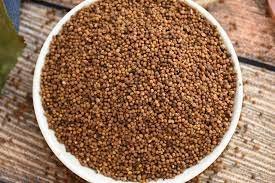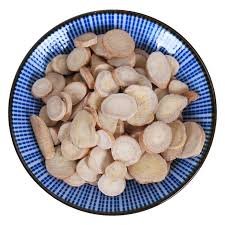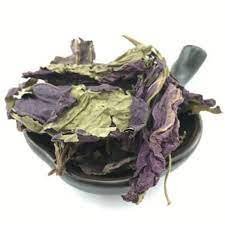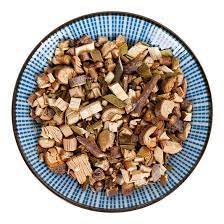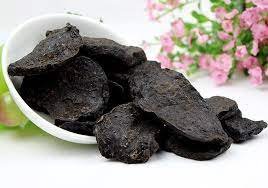Top 10 TCM Herbs for a Successful Pregnancy
Pregnancy is a beautiful miracle that feels exciting and can bring feelings of gratitude to yourself and the whole family! There are many TCM herbs that are beneficial throughout the different stages of pregnancy whether it’s preconception, prenatal, or postpartum. I’ve created a list of some of my favorite top 10 herbs that you can have on hand during these wonderful stages in your life to help with getting pregnant, relieve feelings of nausea or pain during pregnancy, and help with any symptoms you are feeling post-pregnancy.
Top 10 TCM Herbs for a Successful Pregnancy
1. Tu Si Zi|Chinese Dodder Seeds (Cuscutae Semen)
This herb is best used when preparing the body before pregnancy and is described to have a sweet yet sharp taste. It is known to tonify the kidneys yin and yang by treating impotence, nocturnal emission, frequent urination, sore back, uterine bleeding, or heavy clear vaginal discharge. It also boosts the spleen and kidney to stop diarrhea and stabilizes pregnancy by tonifying kidney qi to treat a threatened or habitual miscarriage.
2. Ai Ye|Mugwort Leaf (Artemisia Argyi Folium)
The Latin name Artemisia comes from the Greek Goddess Artemis who was associated with the fertility of nature, and Ai Ye helps with regulating menses.1 Ai Ye is a great herb to use before and during pregnancy and is described to have a bitter pungent taste. It warms the channels and the uterus and stops bleeding. It can be used to treat heavy periods (also known as menorrhagia) and prolonged uterine bleeding from deficiency colds. Ai Ye benefits the fetus during pregnancy by stabilizing the pregnancy when bleeding or cramping threatens a miscarriage. When there is a cold in the womb, Ai Ye can be used to treat abdominal pain, dysmenorrhea (menstrual cramps), leukorrhea (vaginal discharge), and infertility by warming the channels and dispelling a cold.
3. Bai Shao|Chinese Peony Root (Paeoniae Radix Alba)
Bai Shao is best used before and during pregnancy and is described to have a bitter and sour taste. I find it best used when added to bone broth. Bai Shao tonifies liver blood and regulates menses by treating chronic deficiencies of the Ren and Chong, leading to infertility, irregular menstruation, dysmenorrhea (menstrual cramps), amenorrhea (absence of menstruation), excessive menstruation, leukorrhea (vaginal discharge). Bai Shao can also help in relieving premenstrual breast tenderness or any feelings of physical pain and cramping. It is also a mild sedating agent which can be best used to treat feelings of anxiety or help with regulating stress.
4. Gou Qi Zi|Goji Berry (Lycii Fructus)
Goji berry is a versatile and sweet-tasting herb and can be used throughout your entire pregnancy journey. It tonifies kidney and liver yin and can be used to treat sore low back and knees, impotence, nocturnal emission, diabetes, dizziness, and fatigue. Goji berry is also very nutritious as it contains antioxidants and beta-carotene, thus great for visual disorders.
5. Du Zhong|Eucommia Stem Bark (Eucommiae Cortex)
Du Zhong is another great herb that can be used throughout all stages of pregnancy and is described to have a sweet slightly pungent taste. If you find the herb described as “fried”, it simply means it is dried and in the prepared form. In this form, it is best used to secure pregnancy and helps to prevent miscarriage by tonifying kidneys and liver. It is used to treat incontinence, infertility, and impotence by warming the kidney yang.
6. Zi Su Ye|Shiso Leaf (Perillae Folium)
Zi Su Ye is commonly known as Shiso leaf and is great to use during pregnancy to relieve morning sickness and to calm a restless fetus. It is described to have a pungent aromatic taste. Zi Su Ye releases exterior wind-cold and is used to treat headaches, nasal congestion, and cough. By its ability to move qi in the chest and abdomen, it is used to treat nausea, vomiting, poor appetite, and fullness in the chest.
7. Shu Di Huang|Rehmannia Root Tuber, prepared (Rehmanniae Radix preparata)
Shu Di Huang is best when used during pregnancy, especially if you decide to breastfeed. It is described to have a sweet taste. Shu Di Huang tonifies the blood and helps to treat dizziness, irregular menstruation, habitual miscarriage, and uterine and postpartum bleeding. It tonifies kidney and liver yin and replenishes essence.
8. Sang Ji Sheng|Loranthus Twig & Leaf (Taxilli Herba)
Sang Ji Sheng is described to have a bitter taste and is best used during pregnancy to protect the fetus and after conception. It tonifies the liver and kidneys and strengthens bones and tendons. It is used to treat sore, weak lower back and knees, joint pain, and numbness. Therefore, this herb is great if you’re feeling any soreness while carrying your fetus in the womb. It also nourishes blood and protects the womb by treating restless fetus or uterine bleeding with backaches during pregnancy. It is also great for treating dry or scaly skin due to blood deficiency.
9. Dang Gui|Dong Quai (Angelica Sinensis Radix)
Dang Gui is a great herb to use before and after pregnancy. However, use it with caution and avoid it during pregnancy due to its potent properties of tonifying blood. It is described to have a pungent sweet bitter taste. Dang Gui is used to treat anemia, brittle nails, dry hair, dizziness, and insufficient lactation. It promotes blood circulation and alleviates pain. Therefore, it is used to treat irregular menstruation, amenorrhea (absence of menstruation), menstrual cramps, and postpartum pain and bleeding. It is also helpful to relieve constipation as it moistens the intestines and moves stool.
10. He Shou Wu|Fo-Ti Dried Root Tuber (Polygoni Multiflori Radix)
He Shou Wu is described to have a dry sweet bitter taste and it is best used after conception. It is used to treat dizziness, anemia, menstrual irregularities, and weak or sore lower back by rebuilding the blood of the liver and kidneys and boosting essence. It also moistens the intestines to help relieve constipation and treats cardiac conditions such as reducing atherosclerosis and aids in lowering blood pressure
